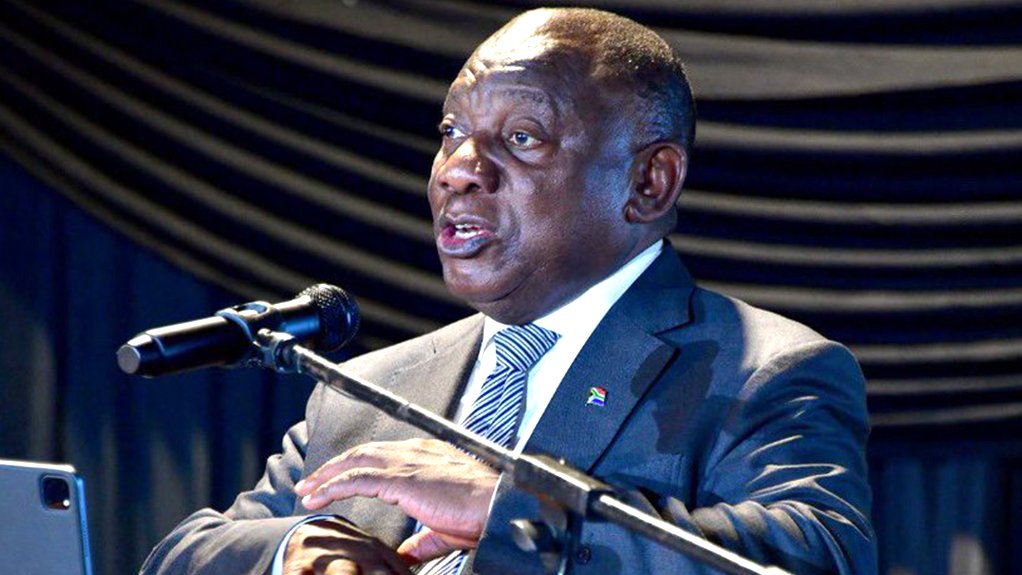/ MEDIA STATEMENT / The content on this page is not written by Polity.org.za, but is supplied by third parties. This content does not constitute news reporting by Polity.org.za.
Fellow South Africans,
With the advent of democracy in 1994, a key priority of the new government was to transform the economy so that everyone could benefit from the country’s wealth.
As a society, we understood that economic transformation could not simply be left to the markets, but would need special interventions to make it happen.
That is why the Bill of Rights in our Constitution says that to promote the achievement of equality, legislative and other measures may be taken to advance people who had been disadvantaged by unfair discrimination.
The same Constitution provides for both value-for-money and empowerment in public procurement.
It says that when public bodies contract for goods and services, they must do so in a manner that is fair, equitable, transparent, competitive and cost-effective. It also says the state must implement a preferential procurement policy that advances people who have been disadvantaged by unfair discrimination. In South Africa, this refers to black people, women and persons with disabilities.
It is in this context that the new Preferential Procurement Regulations published by the National Treasury last week need to be understood. Government remains wholly committed to transformation and empowerment as envisioned in the Constitution.
Some people, for their own reasons, have mischaracterised the purpose and effect of the new regulations. Some commentary has even claimed that this government is back-tracking on its commitment to broad-based black economic empowerment.
This claim is far from the truth.
The new regulations fulfil an order of the Constitutional Court last year declaring that the preferential procurement regulations from 2017 are illegal, and requiring that the Minister of Finance replace them within 12 months.
Some of the commentators on this matter neglect to mention that the crux of the judgment is the scope of Ministerial powers to make preferential procurement regulations.
These regulations now fully comply with Section 217 of the Constitution in that they empower organs of state to develop and implement preferential procurement policies when contracting for goods and services.
These regulations are an interim measure pending the enactment of the Public Procurement Bill, which the National Treasury will soon submit to Cabinet and Parliament. The Public Procurement Bill will maximise both value-for-money and preferential procurement objectives to enable the delivery of services and transformation.
The new regulations have no effect on the Broad-Based Black Economic Empowerment Act, as all organs of state must fully comply with this Act when developing their procurement policies. This Act remains in force as one of the most transformative pieces of legislation to come out of democratic South Africa.
Government’s policy framework has not changed with the introduction of these regulations, nor has our commitment to service delivery and black economic empowerment.
Empowerment criteria will still be applied in government contracting and organs of state must comply with the BBBEE Act when developing their procurement policies.
What has changed is that organs of state will be able to set and apply specific ‘goals’ when evaluating a tender under a preferential procurement policy.
Despite the provisions of the Constitution, despite the introduction of measures to advance the economic empowerment of black South Africans and women, we are certainly not as far as we had hoped to be with economic transformation.
As I told the inaugural meeting of the newly formed Presidential Broad-Based Black Economic Empowerment Advisory Council in July, we need to develop a new vision for black economic empowerment that builds on successes, learns from shortcomings, and that responds to local and global economic realities.
There should be no mistake or misunderstanding: broad-based black economic empowerment is not under threat and is not being reconsidered.
The new regulations are not “a victory for sound business practices” as one interest group has claimed. What is unsound, unsustainable and, above all, immoral, is an economy that benefits the few at the expense of the many.
Put plainly, we remain as committed as ever to broad-based black economic empowerment, meeting our localisation objectives and transforming an economy that, despite our best efforts, is still largely controlled by a minority.
As we reflect on 20 years since the passage of the BBBEE Act, as we remedy the shortcomings that exist and chart a new course, we call on business, labour and civil society to join us on this journey.
We have come a long way since the days when only whites were allowed to own businesses and provide goods and services to the state. Where black businesses did exist, they were confined to townships, rural areas and the so-called homelands. We can and must do more to advance economic transformation.
To borrow the words of the National Development Plan, deepening democracy and building a more inclusive society means that we must continuously strive to translate political emancipation into economic wellbeing for all.
With best regards,
Issued by President Cyril Ramaphosa
EMAIL THIS ARTICLE SAVE THIS ARTICLE ARTICLE ENQUIRY
To subscribe email subscriptions@creamermedia.co.za or click here
To advertise email advertising@creamermedia.co.za or click here











